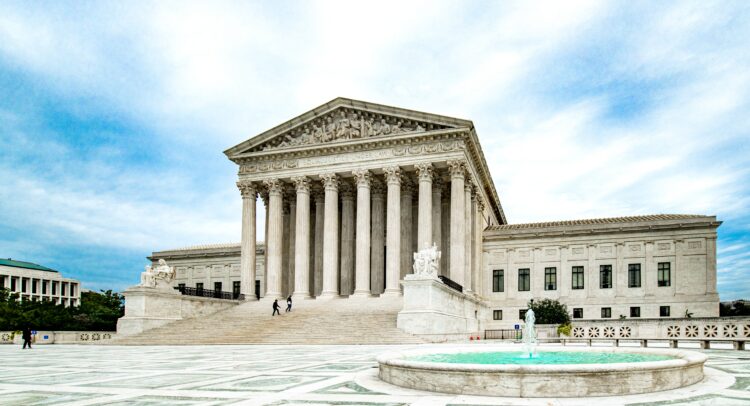Last month, the Supreme Court took a decisive stance in upholding the principles of checks and balances, particularly targeting federal agencies that have overstepped their bounds and encroached on the powers of the legislative and judicial branches. The realignment of power has significant implications for corporations and the legal profession, as it paves the way for a new era of legal battles and potential victories against what many perceive as overly aggressive regulatory bodies.
Meet Your ETF AI Analyst
- Discover how TipRanks' ETF AI Analyst can help you make smarter investment decisions
- Explore ETFs TipRanks' users love and see what insights the ETF AI Analyst reveals about the ones you follow.
Federal Agencies Can’t Overstep Mandates
Causing a dramatic shift, the Court ruled in several cases handed down in June that agencies must strictly adhere to their statutory mandates and cannot assume powers not explicitly granted to them by Congress. The rulings sent shockwaves through the federal bureaucracy, as they effectively halted the power of agencies that have become accustomed to operating under their own discretion.
Some federal agencies, like the Securities and Exchange Commission (SEC), have been making and enforcing laws through separate hearing systems the agencies created.
Businesses Get More Breathing Room
For corporations, the Court’s decisions are a welcome relief. Over the years, businesses have found themselves at the mercy of agencies that wield considerable power, playing lawmaker, judge, and jury. They have been imposing hefty fines and crippling regulations without clear legislative authority. With the Court’s recent decisions, companies now have a powerful tool to challenge agency actions that they believe exceed the bounds of the law.
Lawyers are the More Immediate Winners
Lawyers, too, stand to benefit from this new legal landscape. As corporations gear up to challenge agency decisions, the demand for legal expertise in administrative law and regulatory compliance is expected to surge. Lawyers who specialize in these areas will find themselves in high demand as they navigate the complex web of statutes and regulations to build compelling cases against federal agencies. Indeed, there are years worth of past cases that may have been decided by an agency that had no jurisdiction.
Power Shifts Back to Elected Representatives
The implications of the Court’s decisions extend beyond the realm of corporate interests. They also have the potential to reshape the balance of power between the branches of government. By reining in the authority of federal agencies, the Court has effectively restrengthened Congress’ role in setting the nation’s regulatory agenda. This shift may lead to a more intense, hands-on legislative process, as lawmakers are forced to take a more active role in defining the scope and limits of agency powers.
Key Takeaways
The Supreme Court’s recent rulings have reinforced the principles of checks and balances by curbing the authority of federal agencies and empowering corporations with a potent means to contest agency actions that overstep their statutory mandates. This shift is anticipated to bolster the demand for legal professionals well-versed in administrative law and regulatory compliance. Furthermore, the decisions will recalibrate the power dynamics between the branches of government, potentially compelling Congress to assume a more proactive stance in shaping regulatory policies.
















